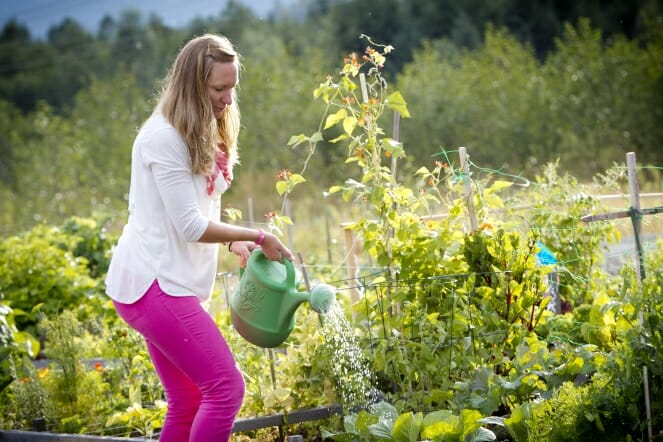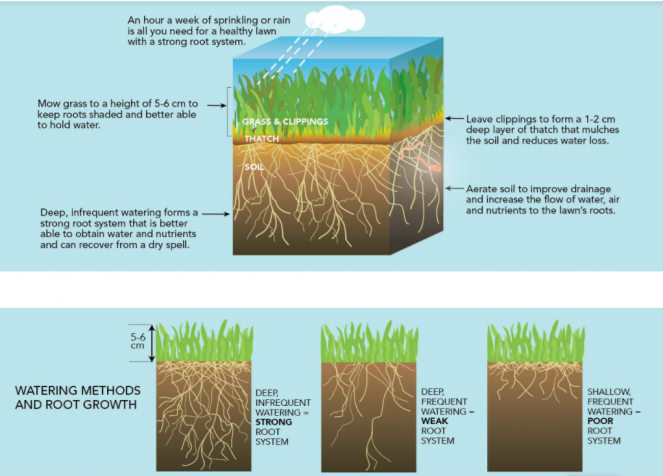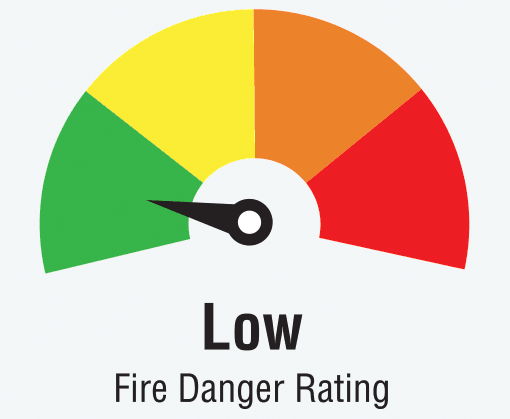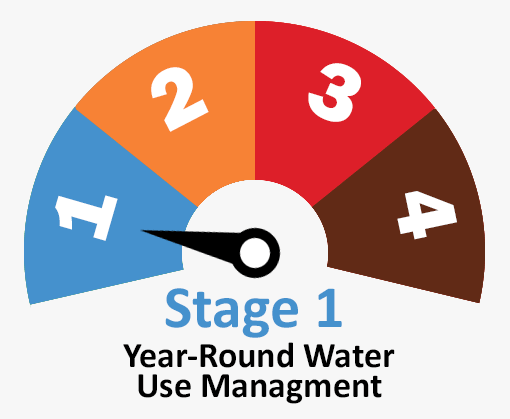
While it can rain a lot in Whistler, most precipitation falls from November through April. Our summers can be long and dry, and with climate change, we can expect the summers to be longer, hotter, and drier than ever before. This is also when we use the most water. Making small adjustments to how we use water on our lawns and gardens and in our homes is important to ensure that we have sufficient water for essential needs, like drinking water and fires.
Quick tips to save water in and around your home every day
- Invest in water-conserving showerheads, aerators on bathroom taps and install toilets that are certified as water-conserving. Combined, these changes can save more than 100 litres a day.
- Turn off the water when shaving, brushing teeth, and washing dishes. This can save 10 to 40 litres/day.
- Only run your dishwasher and washing machine when you have full loads.
- Use a broom instead of a hose to clean the driveway and sidewalk. A hose uses 23 litres/minute.
- Wash your car using soap and water from a bucket.
Maintaining a healthy lawn while conserving water
An hour of steady rain or sprinkling per week is all you need for a healthy lawn, with deep roots that can stand up to a dry summer.

- Your grass needs as little as 2 cm of water every week to stay green, so letting it take a rest is one of the easiest ways to reduce water use. An hour of rain or sprinkling per week is all you need for a healthy lawn. Click here for more tips on eco-friendly turf care.
- Light mulching with straight compost (no sand added) is a great way to save water and protect plants from drying out between watering. Municipal Compost is available at the Whistler Transfer Station and various landscape companies.
Maintain a healthy and ecofriendly garden that thrives in our climate
- Choosing local, drought-resistant plants, adapting your watering routine and utilizing water conservation tools are just some of the ways you can reduce your water consumption during peak periods and still enjoy a beautiful, sustainable garden.
- Get a spring-loaded nozzle for watering – an easy way to control your water usage. A nozzle or watering can are both better solutions than using water from a conventional sprinkling system.
- Break up the surface of soil before watering – hardened soil won’t let the water through.
- Use a rain barrel – rain barrels connected to your roof downspouts and harvest water that would otherwise end up in storm sewers. Combine rain barrels with a drip irrigation system and you can reduce your water requirements, spend less time watering, and keep plants healthy at the same time.
Special thanks to Metro Vancouver and the UBC Botanical Gardens for their valuable research on water conservation.
More tips on water conservation:
Metro Vancouver Water Wise Initiative
Contact
Infrastructure Services
604-935-8190
engineers@whistler.ca


